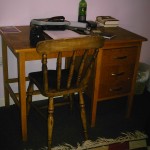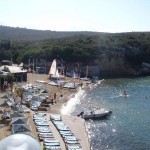 This week’s blog is later than usual due to the absolute lack of internet at The Hurst in Shropshire. It was a great week full of workshops and advice from the lovely Linda Newbery and Celia Rees around the creation of YA fiction. One of the great bonuses was the opportunity to have work read and a tutorial from each of these successful writers.
This week’s blog is later than usual due to the absolute lack of internet at The Hurst in Shropshire. It was a great week full of workshops and advice from the lovely Linda Newbery and Celia Rees around the creation of YA fiction. One of the great bonuses was the opportunity to have work read and a tutorial from each of these successful writers.
I had my slot with Linda early on – she was as encouraging and helpful as I expected, and has helped me tighten up the beginning of my Scoresby story. It was much appreciated. The chance to ask for Celia’s expertise came on Friday. Truth told, I was a little anxious about this: she had been quite forthright in her opinions all week and I suspected sh.
Nonetheless, I asked her to give my structure the once over – and she was kind enough to offer to read an extract too. I know from my feedback from Ellen Renner some years ago that honest advice is much more useful than cosy niceness. It might be pleasant to be reassured how good your work is – but it won’t advance your understanding much.
So I went and I listened and I learnt: curiously I was more interested in the things she saw needed changing than praise (though that was relished). The stand-out piece of advice, the rocket that soared over the whole bonfire of pertinent observations was:
Don’t get hung up on the ordinary stuff.
Now the immediate context was the overlong first section of my book. Celia explained that although competently written, elements of this detracted from the true story and should go. They were relatively pedestrian and it was time to murder a few darlings.
But there was more to this. Throughout the week, it became clear that quite a few of us often wrote what we felt we ought to, rather than what truly excited us. When we babbled on about our enthusiasms, or better still, wrote using them, our work came alive. So why on earth weren’t we using our true voices?
So the message I’ve taken, burnt into my understanding like the trail of a sparkler, is that mining the resources inside myself will develop who I am as a writer. I’ve never been what you might call ‘normal’, and it’s always ended in tears when I’ve tried to be. Let others write realistic contemporary urban: I’ll stick to my own variety of weirdness.


 Today, 3rd September 2011, I went to
Today, 3rd September 2011, I went to

